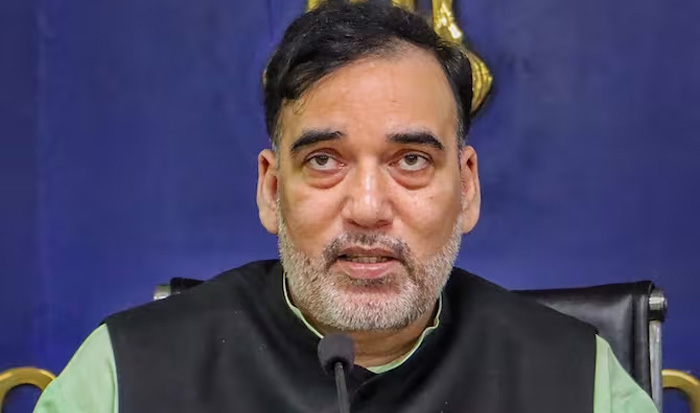Odd-even scheme: Gopal Rai calls urgent meeting after Supreme Court terms it ‘mere optics’
Delhi environment minister Gopal Rai on Wednesday called an urgent meeting to discuss the implementation of the Supreme Court observations on the odd-even car rationing scheme as air quality in the national capital turned ‘severe’ yet again.
The Supreme Court on Tuesday termed the scheme as “optics” even as it questioned its efficacy and success in the past in reducing the dangerously high pollution levels in the national capital. On November 6, the Delhi government had announced that it would roll out the odd-even scheme to curb vehicular emissions.
The court also sought a response from the Aam Aadmi Party (AAP)-led Delhi government by Friday on alternative ways the court suggested to reduce vehicular pollution.
The Delhi government had planned to announce details of the implementation of the odd-even scheme, including exemptions and penalties to be imposed. However, following the SC’s directions on Tuesday, Rai said they will wait for the court’s written orders based on which a decision on the implementation of the scheme will be taken.
The government had announced that the vehicle rationing scheme will be rolled for a week on November 13 in a bid to tackle the ongoing pollution crisis.
On Tuesday, a bench of justices Sanjay Kishan Kaul and Sudhanshu Dhulia, sounding rather unimpressed by the plan, said, “Has the odd-even scheme been successful (in the past)? These are all optics.” Delhi has seen three previous stints of the odd-even scheme being implemented in 2016, 2017 and 2019.
The court’s view was shared by amicus curiae Aparajita Singh, who termed the scheme unscientific and referred to an order passed by the top court on December 2 last year, directing Delhi and its adjacent states to implement the colour coding scheme. It essentially involved coding vehicles based on their fuel type for easy identification. For instance, diesel-run private vehicles had an orange tag and blue tag for petrol-run vehicles.
In a meeting held after the court’s orders, Delhi minister Rai said, “We held a meeting today with officials from the traffic police, transport and environment departments where how to implement the odd-even scheme was discussed. However, we will make any further strategies or announcement only after we have carefully studied the SC order.”
Transport minister Kailash Gahlot also directed the department to ensure no polluting vehicle enters Delhi from other states even as a ban is in place on non- BS VI vehicles. “However, it has come to my notice that polluting vehicles are entering Delhi borders at odd hours from neighbouring states without any hindrance. It appears that no checking is being done… to restrict entry of such polluting vehicles…,” stated the minister’s order.
Meanwhile, the office of lieutenant governor VK Saxena alleged that Rai has not approved on paper the decision to implement the odd-even scheme, and the announcement made on Monday is an attempt to divert the attention of people and courts from the pollution crisis.
What is the odd-even scheme?
Introduced by the Arvind Kejriwal-led government in 2016, the odd-even rule allows private vehicles to be driven only on alternating days – depending on the last digit of their number plate. Under this scheme, vehicles with licence plate numbers ending in an even digit are allowed to operate on even dates, while those ending in odd digits can ply on odd dates.
According to a notification issued by the Delhi government in 2016 during the scheme’s implementation, the restrictions also apply to the non-transport four-wheeler vehicles bearing registration numbers of other states. The notification also said that violation of the restrictions would attract a hefty fine to the owner.
The scheme is usually implemented to combat the severe air pollution in the national capital.
Air quality in Delhi severe again
Air quality in Delhi and its suburbs dropped to the severe category again on Wednesday morning, with smoke from post-harvest paddy straw burning in neighbouring states accounting for one-third of the air pollution in the national capital.
The city’s Air Quality Index (AQI) stood at 421, worsening from 395 at 4 pm on Tuesday.
Despite a marginal dip, the concentration of PM2.5, fine particulate matter capable of penetrating deep into the respiratory system and triggering health problems, exceeded the government-prescribed safe limit of 60 micrograms per cubic metre by seven to eight times in the capital.
It was 30 to 40 times the healthy limit of 15 micrograms per cubic metre set by the World Health Organisation (WHO).

